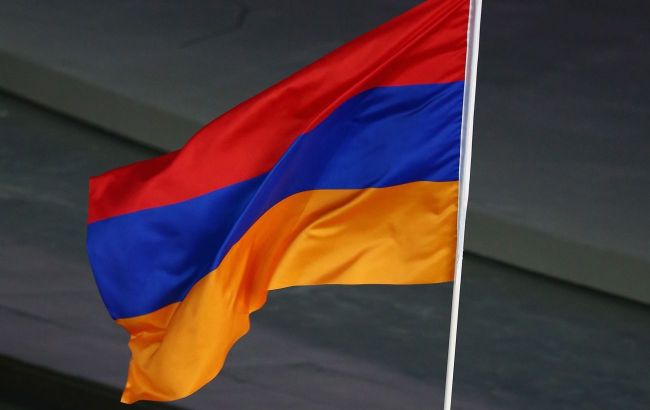EU sanctions against Russia: Armenia removed from Magnitsky list supporters
 Photo: Armenia removed from the list of countries joining EU sanctions against Russia over human rights violations (Getty Images)
Photo: Armenia removed from the list of countries joining EU sanctions against Russia over human rights violations (Getty Images)
In the statement by the head of European diplomacy, Josep Borrell, regarding the agreement of a series of countries that joined the restrictive measures against Russia on December 18 for human rights violations, Armenia and Azerbaijan are not mentioned. These countries were included in the list earlier today on the European Council's website.
The EU Council extended the application of restrictive measures under the so-called Magnitsky list for another 24 months, until December 8, 2026.
Among the mentioned countries that joined the sanctions against individuals and legal entities from Russia subject to restrictive measures are:
-
Ukraine,
-
North Macedonia,
-
Montenegro,
-
Albania,
-
Moldova,
-
Bosnia and Herzegovina,
-
Iceland,
-
Liechtenstein,
-
Norway.
"They will ensure that their national policies conform to this Council Decision. The European Union takes note of this commitment and welcomes it.," the release states.
Neither Armenia nor Azerbaijan are mentioned in the document.
Background
Earlier today, on December 18, it was announced in the EU Council that Armenia and Azerbaijan had joined the EU sanctions against Russia for human rights violations. Ukraine and Moldova were also included in the list of states that supported joining the restrictions.
As previously reported, according to a statement published on the European Council's website earlier on Monday, Armenia, for the first time since Russia's invasion of Ukraine, supported EU sanctions against individuals and legal entities from the aggressor country.
It is worth noting that Armenia had previously joined the framework decision on the establishment of a Global Human Rights Sanctions Regime dated December 22, 2020.
The sanctioned lists include individuals and entities involved in various human rights violations worldwide, including Russians. Since the start of the full-scale Russian aggression, those involved in crimes on Ukrainian territory, such as the Wagner Group, have been included in these lists.
Among the known Russian officials on the list are the head of the Investigative Committee, Alexander Bastrykin, and the head of the National Guard, Viktor Zolotov.
The EU's extension of sanctions against Russia for human rights violations will remain in effect until almost the end of 2026.
Key features of this list
Since 2020, Armenia has not joined the expansion of sanctions under this regime until the European Council's recent decision on December 4 this year.
In addition, according to previously released press releases from the European Council, Azerbaijan was set to join this sanctions regime for the first time.
Armenia's position on sanctions against Russia: Armenian Prime Minister Nikol Pashinyan has repeatedly stated that his country is compelled to comply with anti-Russian sanctions in trade, financial services, and more to avoid falling under Western secondary sanctions. However, Armenia has been named in Western media as one of the key routes for bypassing anti-Russian sanctions.
An indirect confirmation of this is the significant increase in Armenian exports to Russia since the start of the full-scale war in Ukraine.
Armenian government officials have acknowledged that re-export plays a significant role in this, but they have denied supplying Russia with sanctioned goods.

